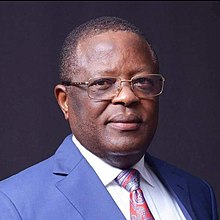 National Security Adviser, Mohammed Sambo Dasuki’s candid comments on the emerging mutation of the status of the Nigerian military in the democratic dispensation coincided ominously with the latest resurgence of the Egyptian armed forces as the “most powerful institution” in that country, forcefully flaunted in a coup against the democratically-elected Morsi government. It is significant to note that the imperative of maintaining national security is a common trait that links these two seemingly unrelated scenarios. By implication, there is an on-going transformation in the instrumentality of the armed forces to the sustenance of law and order which is the pillar of national stability and the essential environment for democracy, indeed any form of government, to function. When we recall that it was only two decades ago that the military was being literally pushed out of government here, followed by widespread rejection of military rule as an option especially in Nigeria and generally across the world, we will decipher the unspoken dimensions of the NSA’s concern.
National Security Adviser, Mohammed Sambo Dasuki’s candid comments on the emerging mutation of the status of the Nigerian military in the democratic dispensation coincided ominously with the latest resurgence of the Egyptian armed forces as the “most powerful institution” in that country, forcefully flaunted in a coup against the democratically-elected Morsi government. It is significant to note that the imperative of maintaining national security is a common trait that links these two seemingly unrelated scenarios. By implication, there is an on-going transformation in the instrumentality of the armed forces to the sustenance of law and order which is the pillar of national stability and the essential environment for democracy, indeed any form of government, to function. When we recall that it was only two decades ago that the military was being literally pushed out of government here, followed by widespread rejection of military rule as an option especially in Nigeria and generally across the world, we will decipher the unspoken dimensions of the NSA’s concern.
There is no doubt that the military has genuine grounds for expressing its worries about the unfolding security challenges leading to what the NSA described as “more deployments in aid of civil authority THAN ANTICIPATED” (capitals mine). It was therefore appropriate that he used the just concluded 4th National Civil Military Dialogue in Abuja which his office co-hosted to raise this issue to national attention in the presence of elder statesmen, former and current leaders among other selected stakeholders. One can only speculate on what was going through the minds of the retired generals who had been unceremoniously dispatched from the seat of power as they gathered in the midst of their political detractors to lament the glaring incapacity of the “democrats” in stabilizing the polity and, inevitably, the “routine” recourse to military deployments and states of emergency !
The crux of this matter lies in the fact that the military forces whose appalling record in direct governance cannot be denied are being increasingly relied upon by civil authority to bring their “draconian” and “repressive” might to the rescue of democratically-elected governments which have become very vulnerable to destabilizing tendencies ranging from terrorist insurgencies to a deadly array of organized criminalities. Worse still, the imperiled democrats are only too eager to cry foul about “rules of engagement” and rights abuses soon after draconian measures have yielded expected dividends of subdued rebellions. This is in addition to the collateral damage on professionalism of the military and what the NSA described as “new dimensions of conflict between the military and civilian populace”. So whither the military in a democratic dispensation?
With all of 28 states under some form of military deployment or the other to contain one threat to national security or the other, it is only logical to see just where we are heading. It is however contentious whether indeed the NSA’s recipes of “creating new bridges of understanding” between the military and the civilians or the vigilance and provision of intelligence and information on terrorists, insurgents and organized criminals by civilians will indeed provide the desired lasting solution to this national dilemma. While all these recipes are not without their merits on the menu for law and order and the clichéd “peace and stability”, it must be admitted that the much-desired sustainable democracy is more challenged by the seemingly intractable problem of discredited electoral processes, emergence of dubious and unpopular leaders and bad governance which in turn burden the populace with the deficits, rather than the dividends, of democracy such as stagnant economy, youth unemployment, zero social security, collapsed infrastructure and eventually failed states.
Against this background, it is worth considering the relevance of a more targeted approach to the thorny problem of restoring the ANTICIPATED and acceptable role of the military under a truly democratic dispensation which focuses more on the evident weaknesses of the leadership class and the attendant failures of national institutions to perform assigned roles. No matter how much we agonize over the apparent return of the military through the back door of spiralling security challenges, we must never gloss over the fact that more often than not such military intervention is the last resort that saves the situation and ultimately the survival of democracy.
The military and indeed the law enforcement agencies should be wary of being transformed into a forceful antidote for the virus of discontent afflicting people reeling from unfulfilled, frustrated but legitimate yearnings and aspirations as citizens. In the final analysis therefore, the concept of dialogue between civilians and the military should be a truly patriotic endeavour in aid, not just of distressed “civil authority”, but more crucially in support of sustainable democratic governance that wins the hearts and minds of the citizens. Otherwise, we might as well start working on a Doctrine of Diarchy which is what the Egyptian military is dusting up from the debris of derailed democracy.
ABDULHAMID BABATUNDE, former Editor, The Democrat, wrote from Kaduna
Follow Us On WhatsApp



